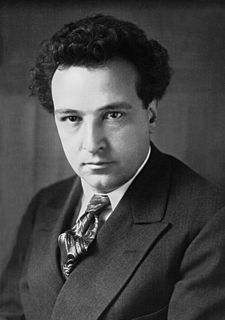A Quote by Jeanette Winterson
The poet will not be satisfied with recording, the poet will have to transform.
Related Quotes
I dream of a collaboration that will become so complete that, often, the poet will think as musician and the musician as poet, so that the work resulting from this union will not be the random conclusion of a series of approximations and concessions, but the harmonious synthesis of two aspects of the same thought.
One of the appeals of William Carlos Williams to me is that he was many different kinds of poet. He tried out many different forms in his own way of, more or less, formlessness. He was also a poet who could be - he was a love poet, he was a poet of the natural order and he was also a political poet.
One of the surest tests of the superiority or inferiority of a poet is the way in which a poet borrows. Immature poets imitate mature poets steal bad poets deface what they take and good poets make it into something better or at least something different. The good poet welds his theft into a whole of feeling which is unique utterly different than that from which it is torn the bad poet throws it into something which has no cohesion. A good poet will usually borrow from authors remote in time or alien in language or diverse in interest.






































